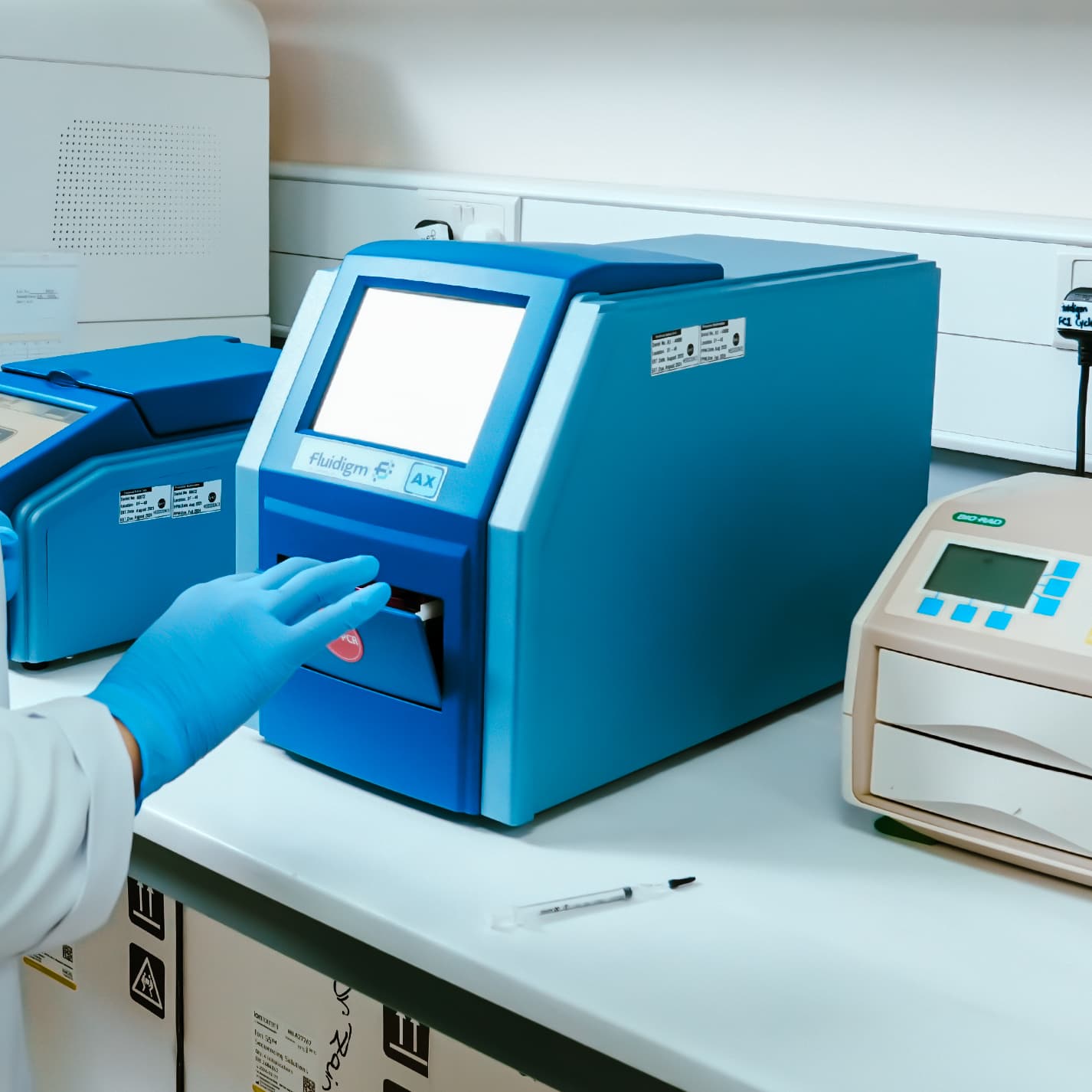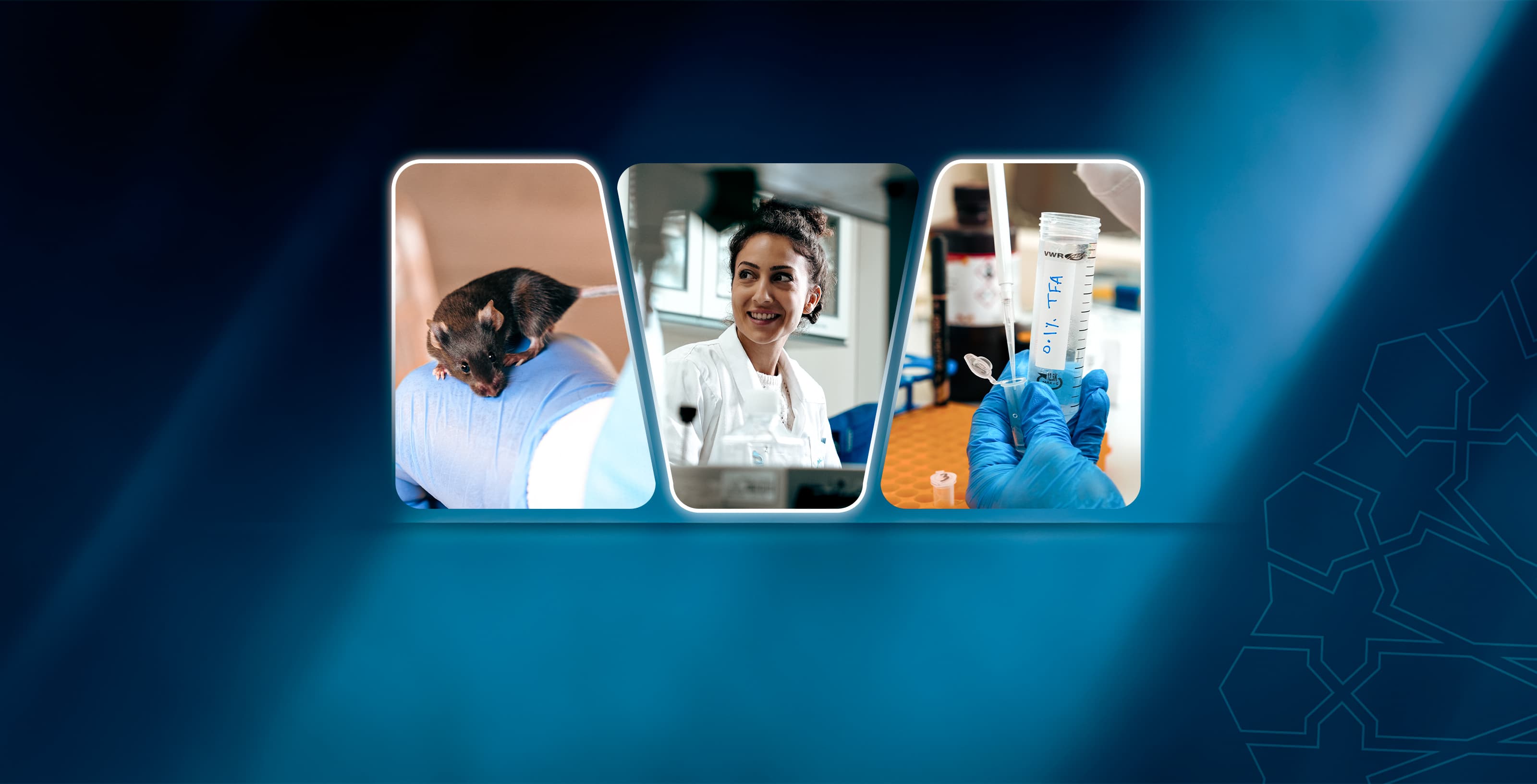
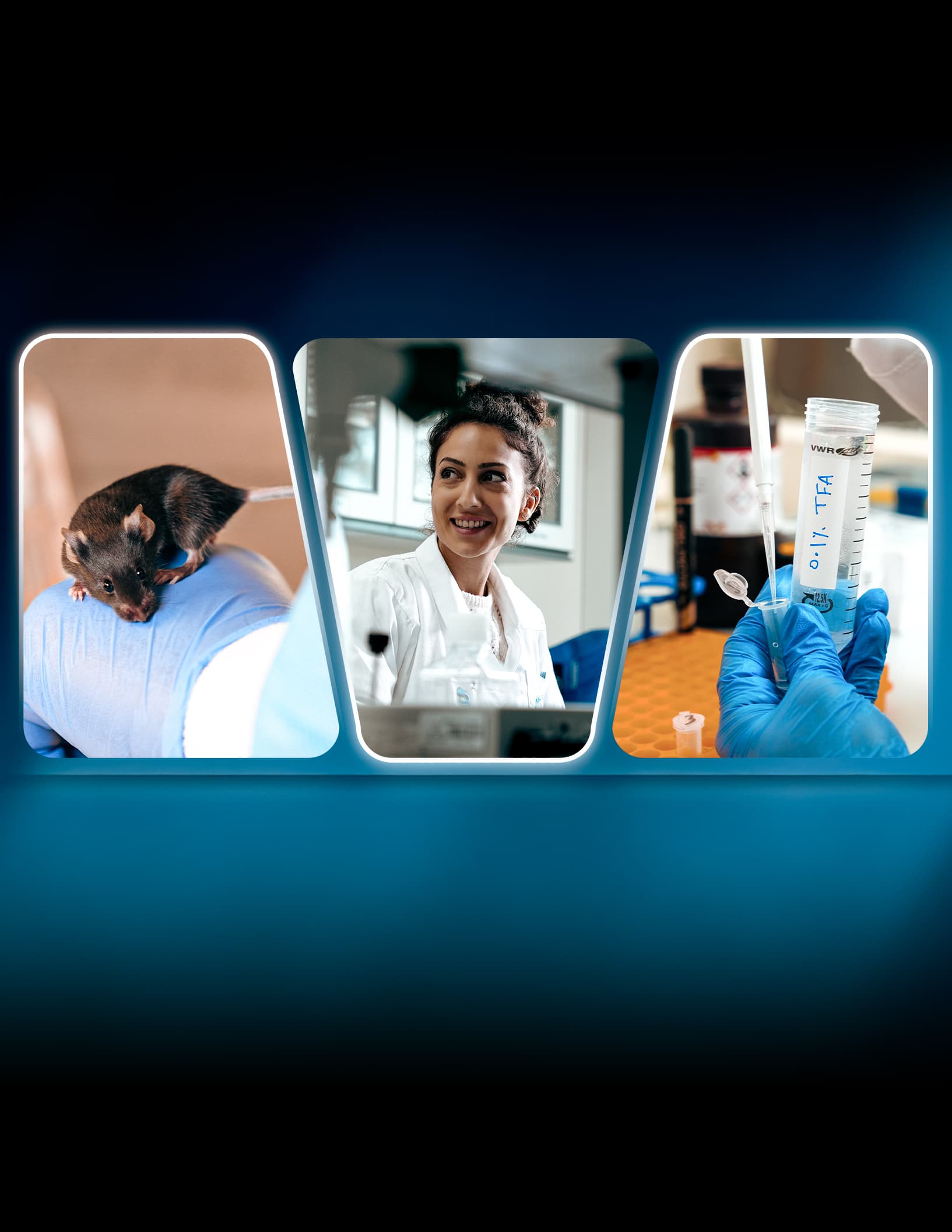
Research Institute of Medical and Health Sciences
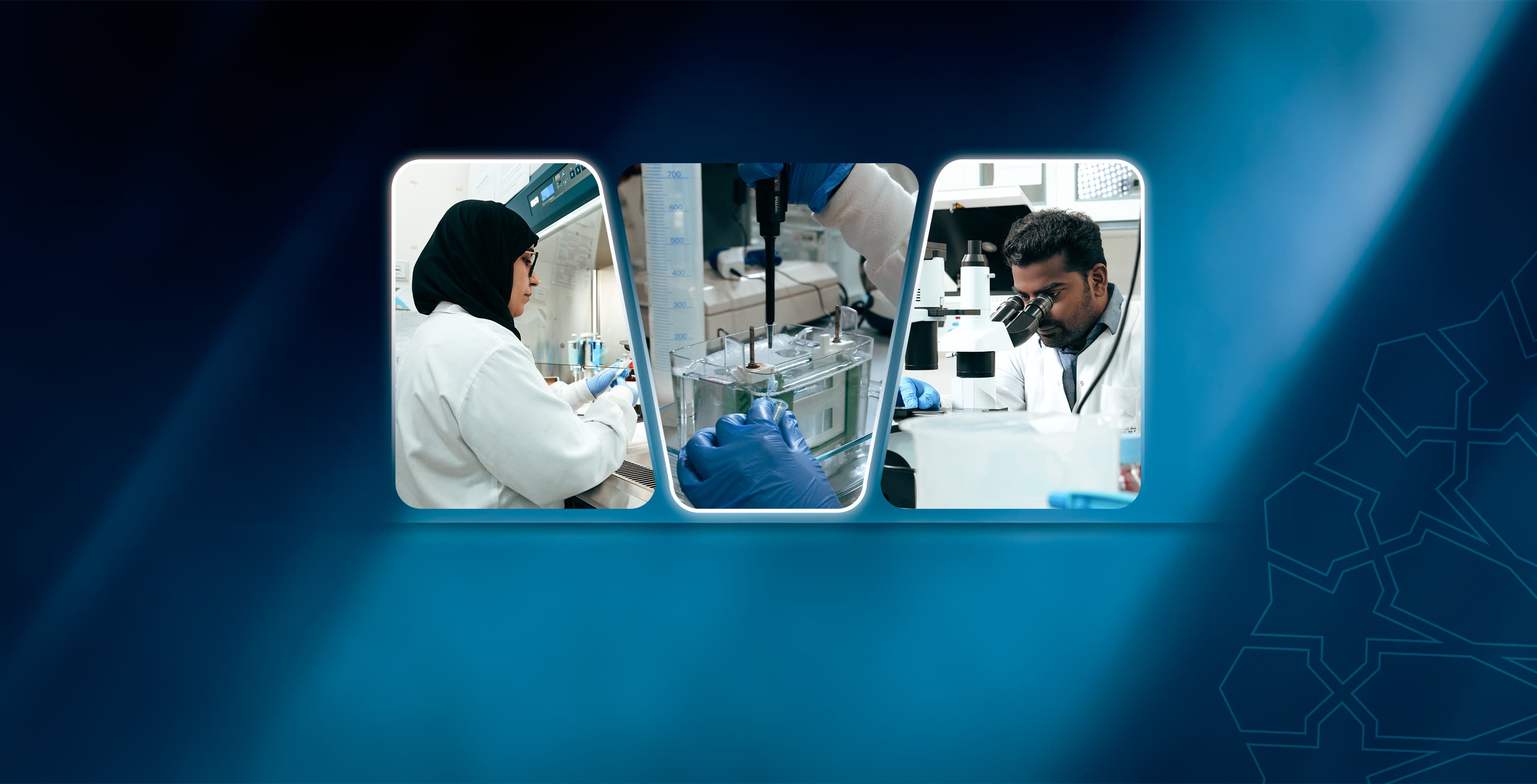
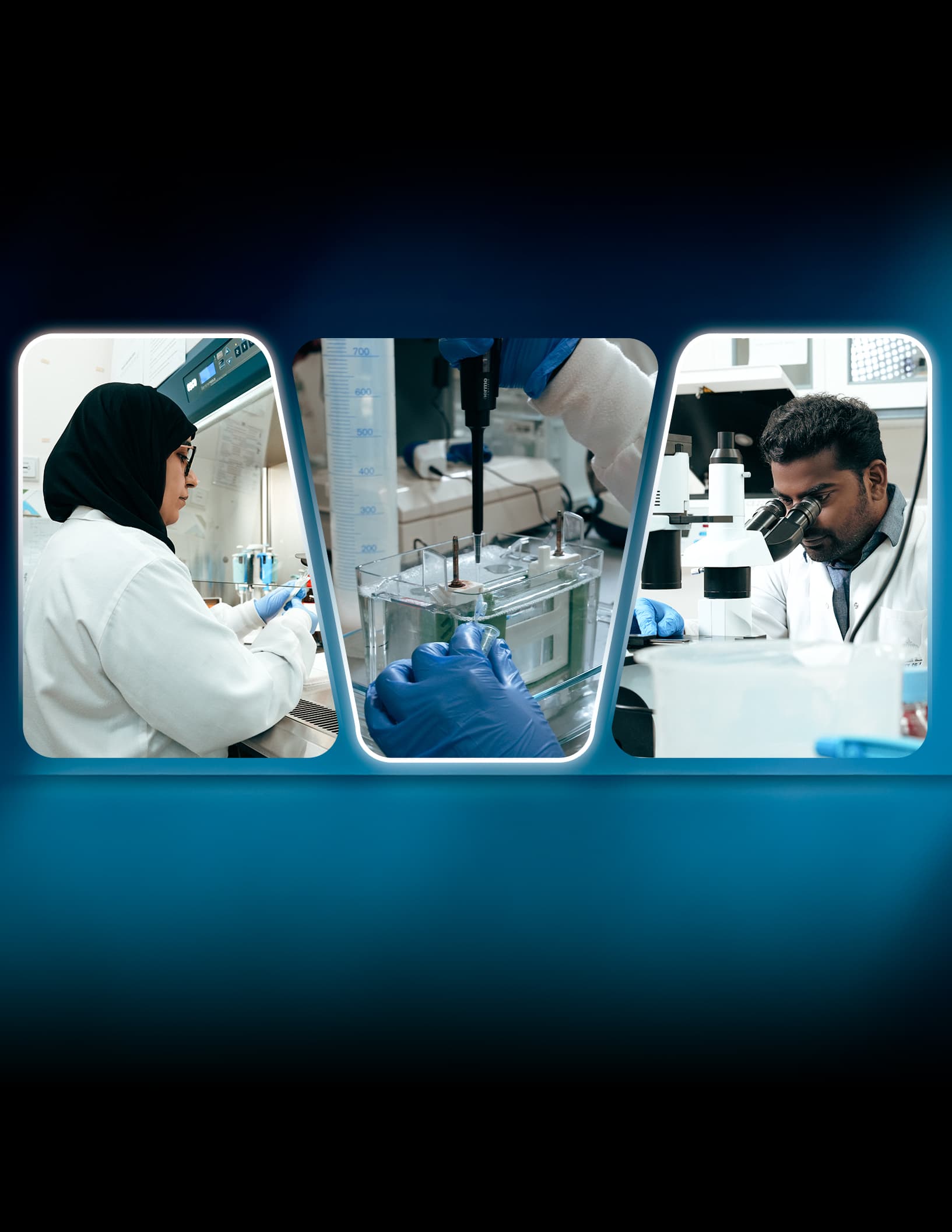
Research Institute of Medical and Health Sciences
Research Highlights
Research Stories
Research Publications
Research Groups and Centers
Research Centers
Research Groups
Center of Excellence for Public Health
The Center of Excellence for Public Health serves as a collaborative and interdisciplinary platform for research, education, training, and innovation in the field of public health. The center's primary focus is on improving public health outcomes through impactful and innovative research across different areas. It is comprised of seven research groups that cover core public health activities, such as health promotion, improving healthcare delivery and medicines use, health economics, health and workforce studies, clinical epidemiology, operational research and integrated AI in healthcare, and nutrition and food science. Each of these research groups is committed to contributing to the significant improvement of health outcomes in the UAE and the region by conducting research that addresses critical public health research priorities and implementing evidence-based interventions that promote health and prevent disease.
Center of Excellence for Precision Medicine
Researchers of CEPM works in an integrative and multi-disciplinary setting to uncover many questions revolving around the causes, patterns, and treatment responses associated with various diseases including cancer, diabetes, asthma among others. They employ AI to define and understand the functions of gene products involved in various diseases. Ultimately, translate the research findings into diagnosis and treatment. Finally, the center investigators utilize state-of-the-art approaches in all phases of their work to develop AI-based innovations in all fields of human health and biology.
Drug Design and Discovery
The Drug Design & Discovery (DD & D) research group is a model of collaboration between different fields and integrating lines of research aiming at developing new agents that can be used for management of dangerous chronic diseases such as cancer and neurodegenerative disorders.
Gene Editing and Therapy Research Group
The long-term goals of the Gene Editing & Therapy research group are to advance biomedical research at the University of Sharjah and to develop the infrastructure and the expertise for future clinical applications involving highly promising and fast-growing gene-editing technologies.
Operational Research and Integrated Artificial Intelligence in Healthcare
Our research group will be geared towards solving critical healthcare challenges by applying artificial intelligence and Decision Analysis to diseases diagnosis, therapeutics, treatment error reduction, disease treatment and management, automation of medical processes, symptoms checker, early cancer detection, and medical service delivery.
Health Promotion in the UAE
The Health Promotion Research Group (HPRG) is a dedicated multidisciplinary team focusing on advancing knowledge and strategies in the field of health promotion. Our group is committed to conducting rigorous impactful research, formulating evidence-based interventions, and collaborating with various stakeholders to prevent diseases, promote health and well-being within communities and populations, and overall improve the nation's quality of life.
Improving Health Care Delivery and Medicines Use
The Research Group Improving Healthcare Delivery and Medicines Use is an interdisciplinary group created in 2016 in the University of Sharjah. It is a unique platform through which we investigate health-related issues in primary and secondary care settings.
Healthy Aging, Longevity, and Sustainability
With the progression in the Science of Aging, also known as GeroScience or Gerontology, and the concomitant rising interest in health and nutrition and their intercorrelation with aging and longevity; this interest was paralleled with the establishment of independent specialized research centers and institutions concerned with looking at the various environmental factors that lead to improving the features of life in the aging stages and increasing the chances of longevity without suffering from common chronic diseases, especially neurodegenerative ones.
Iron Biology
Iron is critical for the growth and survival of almost all cells in living organisms. Due to its ability to function as a co-factor for a wide range of proteins, iron plays a key role in cell growth, replication, and metabolism in the human body. However, excess accumulation of free iron can induce reactive oxygen species (ROS) via the Fenton reaction causing significant cellular damage, which could precipitate various pathologies including carcinogenesis. Therefore, patients suffering from diseases that associate with significant iron overload, such as hemochromatosis, are at high risk of developing various forms of cancer including those of the breast, lung, colon, prostate, rectum as well as hepatocellular carcinoma.
Environment and Cancer Research
Cancer is a group of diseases caused by a combination of genetic and environmental or behavioural factors. The Environment and Cancer Research Group seeks to investigate the role of different environmental factors and to identify novel therapeutic modalities. We intend to investigate the molecular effects of common environmental toxins on human cells, their relationship to cancer development, and the signalling pathways involved in the development of different cancers. The impact of various cancer risk factors, such as obesity and the presence of other chronic noncommunicable diseases, is also investigated. In addition, the effect of dietary chemopreventive action of some nutritional elements on cancer is being studied in our group.
Microbiota
Diverse communities of symbiotic microorganisms, predominantly bacteria, “Microbiota”, inhabit nearly every surface of the body exposed to the environment, in particular the skin, oral, and gut epithelium. Many studies have shown that microbiota composition, in particular in the intestine, strongly influences disease susceptibility. This applies to multiple inflammatory, metabolic, infectious, and neurodegenerative diseases. The Microbiota group plan to establish the infrastructure required to perform state of the art analysis of the microbiome at the University of Sharjah. In parallel the group will establish a collaborative network of clinicians, microbiologists, geneticists and bioinformaticians. The primary objective is to study the role of Microbiota in the pathogenesis of common diseases in the UAE. Additionally, will study the influence of the host genome on the composition of skin, oral and gut microbiota and how gene-microbiota interactions contribute to the pathogenesis of these diseases. Eventually we aim to identify defined bacterial "probiotic" species and their products for therapy of common diseases in the UAE.
Infectious Disease and Anti-Infective Therapy
Infectious diseases continue to be among the most serious public health problems around the world and UAE mainly because of (i) There is no updated surveillance systems maintained in large parts of the world in particular the developing countries, (ii) International travel and migration in the Gulf region, and (iii) Numerous outbreaks of drug- resistant microbes were documented around the world. Therefore, our group has been established in 2017 to provide the community with accurate data and complimentary information in relation to infectious diseases with special focus on the UAE.
Immuno-Oncology
The “Immuno-Oncology" group is a unique research group in the UAE that focuses on understanding the cancer microenvironment and in particular, the crosstalk between immune and tumor cells. Additionally, our group focuses on the epigenetic regulation of carcinogenesis, as well as the therapeutic targeting of autoimmune diseases.
Cardiovascular Research Group
Cardiovascular diseases (CVDs) are the leading causes of morbidity and/or mortality in the United Arab Emirates (UAE) and, worldwide. Despite therapeutic advancement, the frequency of CVDs including vascular dysfunction, ischemic and hypertensive cardiac diseases are increasing at an alarming rate, largely due to lack of awareness and sedentary lifestyle.
Wound Healing & Oral Diagnosis Research Group
Oral and craniofacial wound healing and oral Diagnostics is a very interesting and challenging area of dental science. Researching into the basic biological processes of oral regeneration often create more questions than answers and invites a cluster of a multidisciplinary team involving biochemist, pharmacist, pathologist, dentists, surgeons, nurses as well as researchers in oral medicine and biology to search for evidence in wound healing mechanism and its management. The fundamental concept under investigation is “how does bone and soft tissue heal"?
Neuromusculoskeletal Rehabilitation group
The Neuromusculoskeletal Rehabilitation group has a primary objective: to advance the assessment and treatment of musculoskeletal and neurological conditions in various populations, including athletes, individuals with spinal pain, and the elderly who are frail.
Research Focus Areas

Precision Medicine

Cancer

Metabolic Disorders

Infectious Diseases

Public Health

Neuroscience

Dental Medicine
World-Class Resources and Training
Prev
Next

General Enquiry
Seeking more information? Our dedicated team is ready to address your queries. Connect with us through our general inquiry channels for prompt and insightful assistance.

